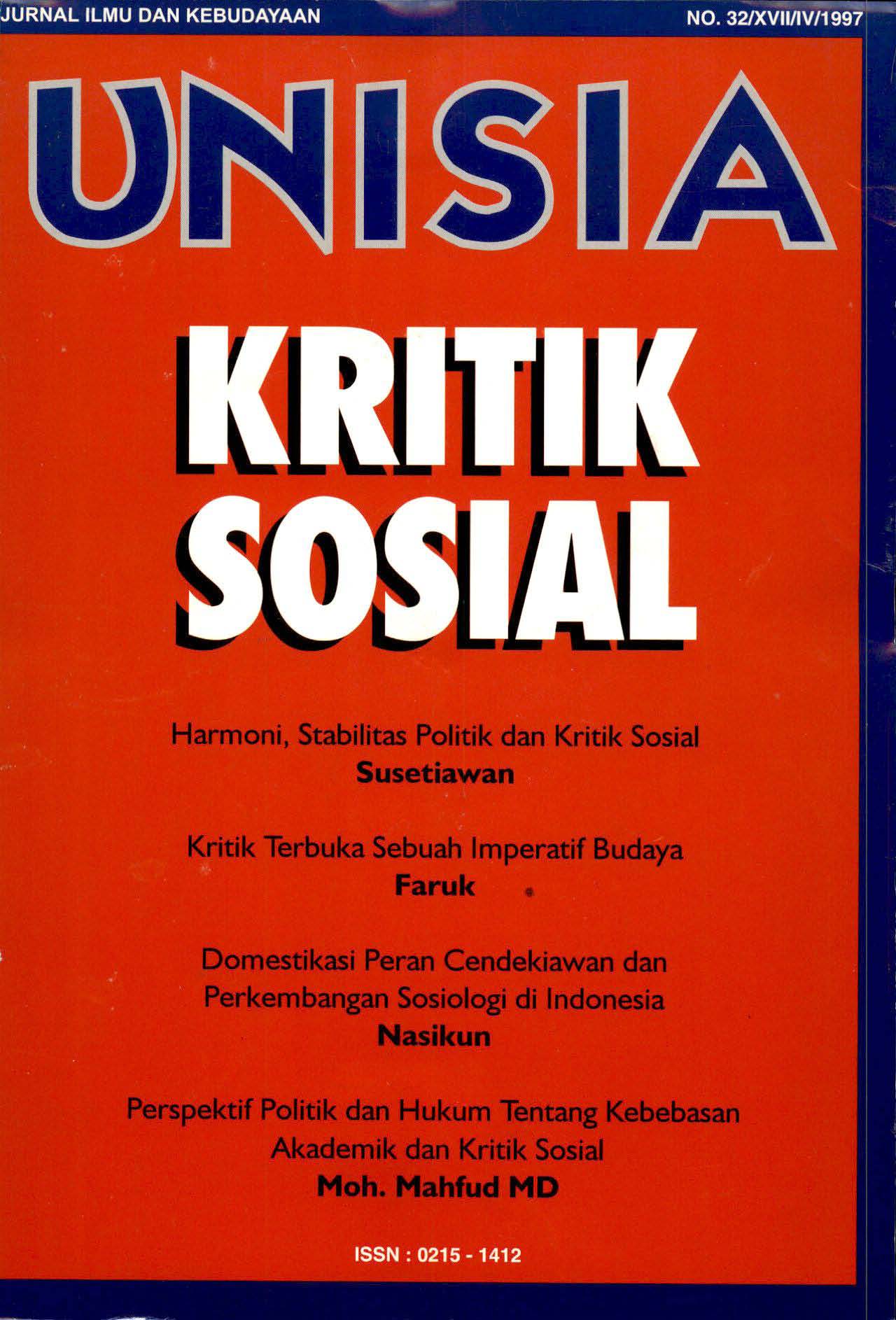Main Article Content
Abstract
Recently, there are many social movements which arise in many parts of big city in Indonesia. These days, social movement, that is known as a demonstrasi or unjuk rasa seem to become a trend and very popular inside the society in order to get what they want but unreachable.
Most of these acts are pointed to the government, both in civil and military. While, the majorities that take apart in this social movement are the students from all universities, both state universities and the private ones. They are not only concern ing about political matter, but also con cerning about many social problems.
The objective of this research is to prove Orum's theory whichshows a causing factor of individual participation In doing a social movement that is determined with 6 important variable. They are: Political Trust, Political Efficacy, Unstructured Work Routine, Subjective Dissatisfaction, Subgroup Identification, and Self Esteem.
The subjects of this study were 139 students, male and female, both activist and non-activist that spread in many universities, both state and private in Yogyakarta and Surabaya. Seven scales were used for examinting the participation on social movement.
The result of data analyses by using Path Analysis, finds an output which fits with Orum's Theory, that is: There is a positive correlation between unstructured study routine and participation in the so cial movement (1); between subgroup iden tification and participation in the social movement (2). There is a negative correlation between subjective dissatisfaction and political trust (3). On aothe hand, another result that is not fit with the Orum's Theory are: There is no significat correlation between politi cal trust and participation in the social movement (4); between political efficacy and participation in the social movement (5); between subgroup identification 'and political trust (6); between self esteem and political efficacy (7).
Article Details
- Authors retain copyright and grant the journal right of first publication with the work simultaneously licensed under a Creative Commons Attribution License that allows others to share the work with an acknowledgement of the work's authorship and initial publication in this journal.
- Authors are able to enter into separate, additional contractual arrangements for the non-exclusive distribution of the journal's published version of the work (e.g., post it to an institutional repository or publish it in a book), with an acknowledgement of its initial publication in this journal.
- Authors are permitted and encouraged to post their work online (e.g., in institutional repositories or on their website) prior to and during the submission process, as it can lead to productive exchanges, as well as earlier and greater citation of published work.




